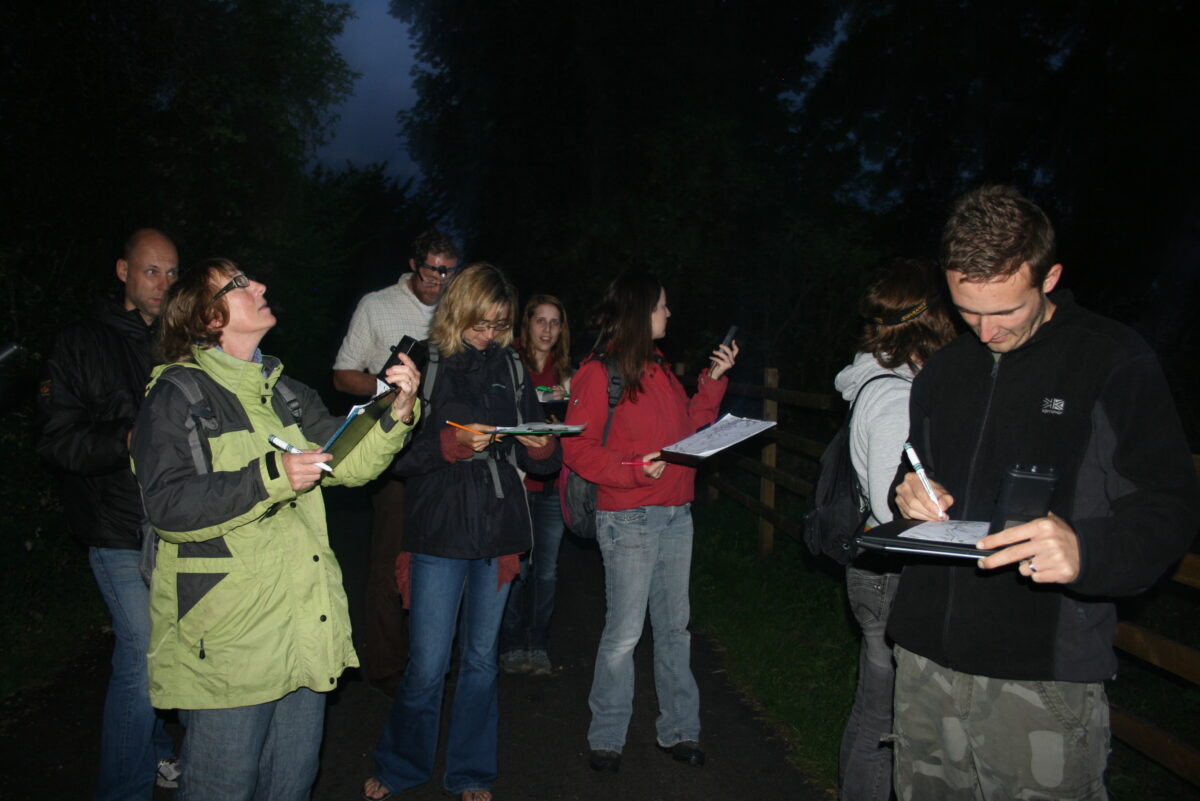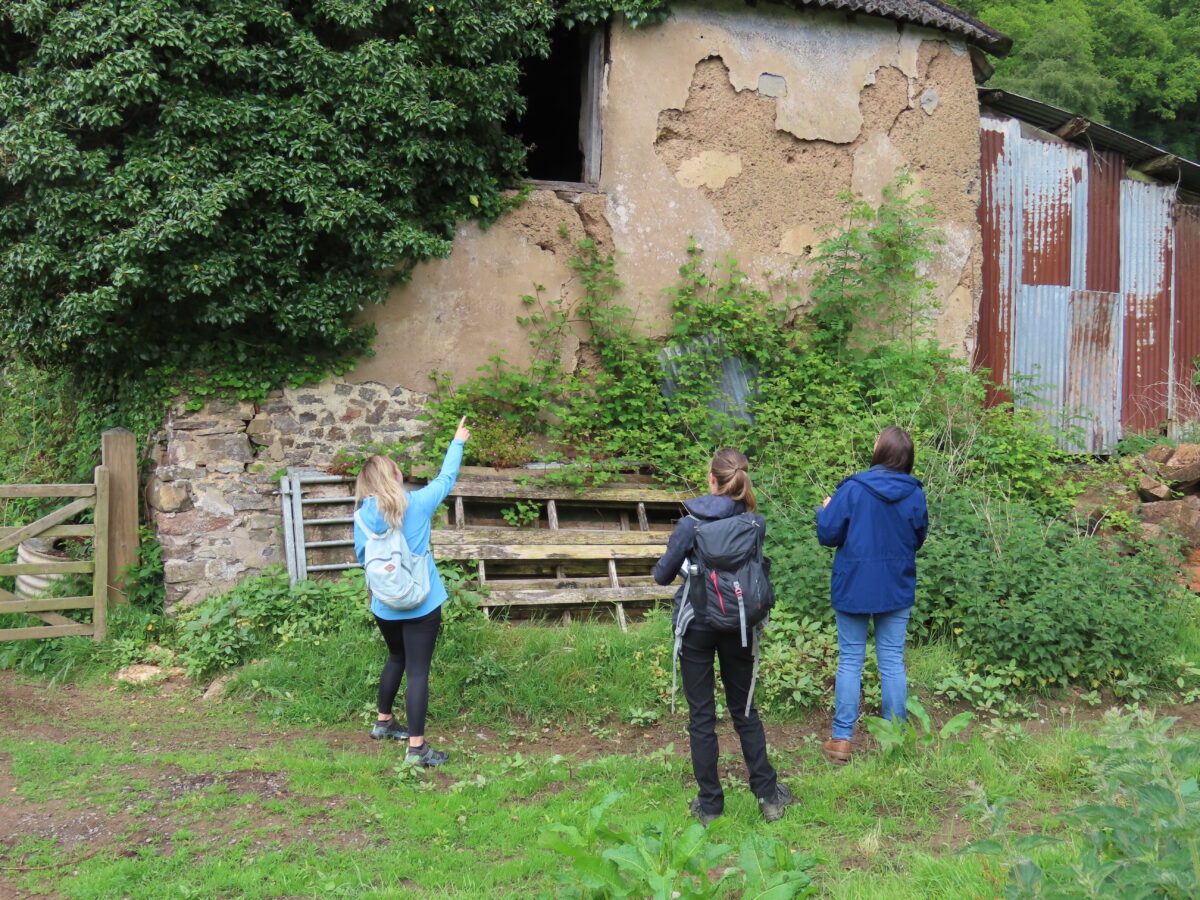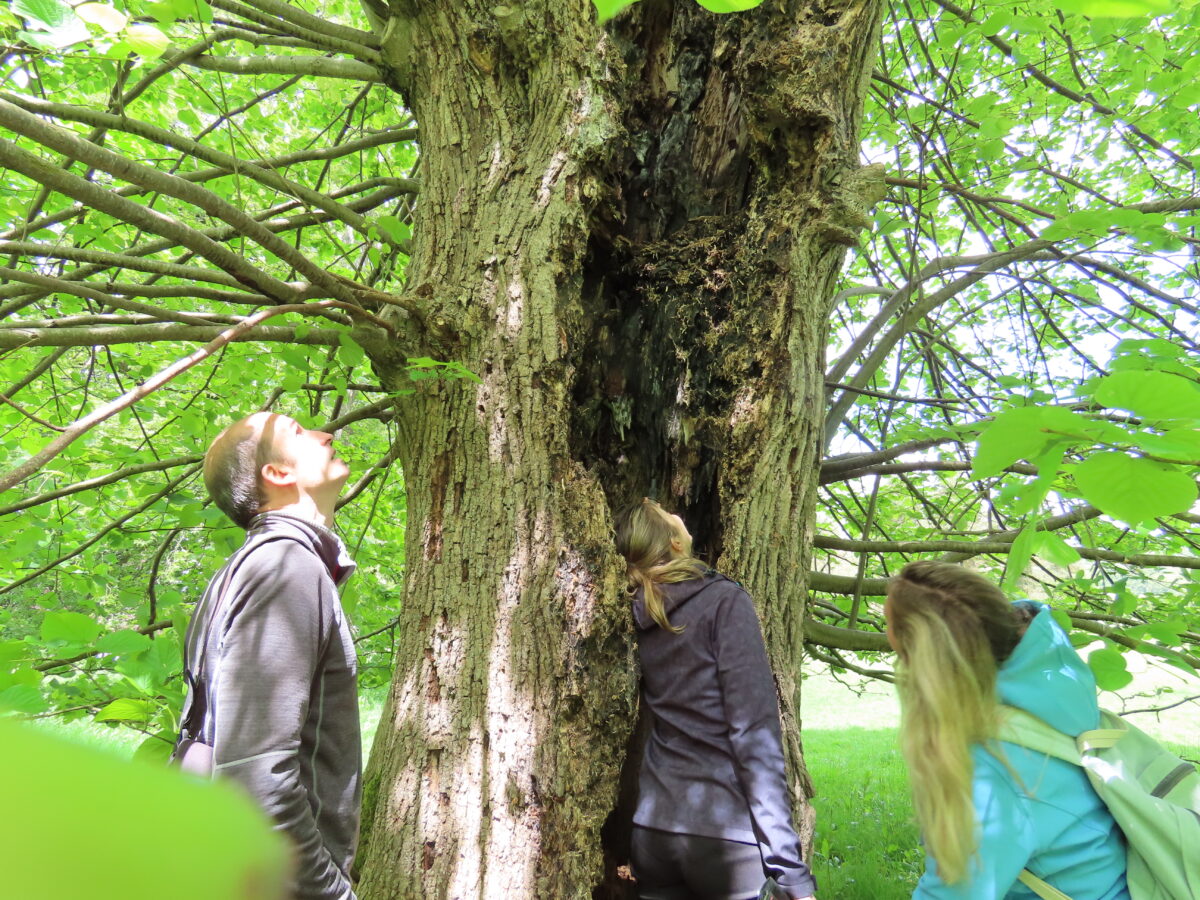If you want to work with bats, understanding how to get your bat licence is the first challenge you will face. We are here to help with this simple guide by head tutor Sue Searle.

Are you fascinated by bats? Do you want to be able to survey them or work in ecological consultancy? Then why not work towards your bat licence? It’s a great way to supercharge your career in ecology or get your career off to a flying start.
People often ask me, ‘How do I get my bat license?’ I usually tell them what I’m about to tell you. There is no quick way to get a bat license, and you will need to gain a lot of experience. Don’t be put off, though; the journey is so much fun. If you’re anything like me, bats may become somewhat of an obsession.
How to get your bat licence?
Navigating the process of how to get your bat licence might seem a little intimidating at first. Bats are a protected species and are extremely vulnerable. For this reason, it is important that only people who hold licences can work with bats.
Whether you are just starting out, or you are close to getting your bat licence, this guide should be of some help. Here we will cover:
- What is a bat licence?
- Why get a bat licence?
- Recommended training courses
- How do I get my bat licence?
- How do I get experience for my bat licence?
- How long does it take to get my bat licence?
- What else can you do to get your licence?
- Recording your experience
- Useful documents
- What other training is available
- Bat licence levels
- How do I apply for my bat licence?
What is a bat licence?
Because bats are fully protected by law it is an offence to disturb, kill, injure or capture them. It is also an offence to damage or destroy their roosts or block access to their roosts. They are fully protected because they suffered massive declines in the last 100 years, thankfully most species are now stable or increasing but they are still a lot rarer than they used to be.
If you want to help bats then you may need to carry out surveys, be able to enter roosts and be able to advise people who have bats on site or in their homes. For this, you will need a bat survey licence, although some surveys don’t require a licence as they do not disturb bats (e.g. emergence and activity surveys).
A bat survey licence enables you to lawfully disturb bats. There’s a catch though. It takes time to get a bat survey licence as you need a lot of experience first and you need two licenced people to verify you are competent to hold a licence. So if you want to work towards your bat licence you need to start straight away!

Why get a bat licence?
If you want to work in ecological consultancy, you will find that bat work is a significant part. Having experience with bat surveys or holding a licence will greatly improve your chances of getting these types of Ecology jobs or succeeding at setting up your own ecological consultancy.
When I hire people for consultancy roles, I always prefer someone with a bat licence. They would be top of my list of candidates for that reason alone, even with no relevant degree or formal training.
This is because having licenced bat workers on the team is so helpful for getting the work done during the busy survey season. Even just having some survey experience is better than having no knowledge at all about bats.
Recommended bat licence training courses
As a starting point for your bat licence training, I recommend our Bat Ecology and Surveying course. This course is available online and face-to-face. In the course, you will learn about all 17 species of bats in the UK. You’ll learn about their ecology, diseases, conservation, legislation, and how to identify them. You will also learn how to carry out the various survey methods. We also have a Bat Licence Training, which takes you right through from beginner to being a licenced bat worker.
I will tell you about some more courses later in this post that will be useful when you have more experience.
How do I get my bat licence?
It is vital that you get some experience with bat surveying. As soon as you start helping with bat surveys, you will be working towards your bat licence. You will need at least 100 hours of survey experience to gain your licence. This should include a variety of survey methods, such as activity/transect surveys, emergence surveys and internal building surveys. For the internal building surveys, you will need at least ten visits to be included for your Level 1 or Level 2 bat licence.
Unfortunately, this might take a bit of time, and there are no shortcuts. It will involve going out with more experienced people. Getting your bat licence is a team sport; you can’t get one without the help of other people. Most surveys only take about 2 hours, so building up your experience will take time – around 50 surveys.
How do I get experience for my bat licence?
Getting experience is reasonably straightforward. Most ecological consultancies are extremely busy with bat surveys between May and September. They are always looking for people to help. So, start by offering your services as a bat surveyor to local consultancies.
They would mainly be looking for someone who at least knows a bit about bats (hence we recommend our Bat Ecology and Surveying course). They may offer you some training or allow you to tag along on some surveys until they see you know what you are doing. You could even offer yourself as a health and safety assistant to start with, just to learn the ropes.
I have taken many people on bat surveys, including neighbours, friends, family, and volunteers. It’s great to have people with you on a survey for safety reasons and an extra pair of eyes and hands! Once they are happy for you to survey, they should also pay you to do it. This is great because you can earn money while training for your bat licence.

How long does it take to get a bat licence?
Most surveys are done in the evening so they can fit around work and family commitments. Some surveys are at dawn; you can offer to do these too if it works with your day job.
It took me two and a half survey seasons to get enough experience. I have known people to get their licence in a single season if they go out most nights from May to September, although this can be very tiring!
What else can you do to get your licence?
You should join your local bat group and get to know the bat enthusiasts in your county. Bat groups tend to carry out other activities such as bat walks, bat box checks and hibernation surveys. So, you will get a more broad experience if you go out with them.
A word of warning, bat groups, tend not to like consultants or people just after their bat licence. They put much energy into helping you get experience, and then if you leave as soon as you have your bat licence, it can leave a bad feeling. It’s better to stay involved and help others get their licences. My advice is not to tell them you want your bat licence but to get involved because you are passionate about bats.
The Bat Conservation Trust also does a range of national surveys you can get involved in. These include bats in churches, waterway surveys, roost counts and more. The roost counts can be amazing as you know you will see bats. All you need to do is count them. Your local bat group members might be able to invite you to some of these. It is worth joining BCT. If you can attend the BCT annual bat conference, you will gain a lot of up-to-date knowledge.
If you want to gain bat handling experience for your Level 2 or above licences (more on levels in a minute), try approaching your local bat carers, usually via the bat group. Some bat groups also do research where they trap bats, and you can get handling experience that way. You can also volunteer to be a bat carer – again, ask at your local bat group.
Recording your experience
You should record your bat survey (and handling) experience while working towards your licence. This document will be submitted when you apply for your licence.
CLICK HERE to access our Bat Experience Log spreadsheet that you can use for this.
Other useful documents
Another useful document is the Bat Workers Manual, which contains lots of information you need about current legislation, health and safety and more guidelines on working with bats. The Bat Survey Guidelines is a reference guide for carrying out bat surveys to the current standards. Bat Training Standards is also useful to know what criteria you will need to work within whilst training.
What other bat training is available?
You could explore many aspects of bat work and take further training. I recommend getting a few hours of experience before moving on to extra training.
I recommend the following courses:
- Architectural terms for bat workers
- Health and safety awareness for bat workers
- Legislation for bat workers
- Surveying Trees for Bats
- Bats and Developments
- Bat Sound Analysis
All these are included in our Bat Licence Training course or separately as online courses. Once you have enough experience, you can come on our Bat Licence Revise and Assess course down in Devon. I can then assess your bat work and be one of your signatories for your licence for England or Wales. These courses happen every 6-8 weeks and are for small numbers of students. Check the website for the next available date.
Bat licence levels
In England, there are several levels of bat licence, and typically you would start by going for your Level 1. If you manage to get some handling experience, you could go for Level 2. Descriptions are given here.
Level 1 survey or research license (CL17) (England)
Level 2 survey or research license (CL18) (England)
How do I apply for my bat licence?
Once you have 100+ hours of experience, including ten internal building surveys, you will need to ask two bat workers to sign you off for your licence. One signatory can be us after attending our Bat Revise and Assess course; the other would be someone you have worked with. You cannot have two signatories from the same company if you also work for that company.
You then download the appropriate forms (England) from HERE. There is a fee now, so check what it is when you apply.
Links above for Wales and Scotland – carefully check these requirements before applying.
A word about bats and rabies
A few years ago, a bat worker died of rabies after being bitten by a bat, so now all bat workers need to be vaccinated for rabies, and you need to keep up your boosters. The licensing authority will want to see evidence of your rabies vaccinations. Travel clinics are an excellent place to go for your vaccinations, but once you are licenced, you should get them free on the NHS – ask your Doctor or Practice Nurse.
Now you are ready to go and get your bat licence!
Although it might seem a bit daunting to do all this work for a licence, it is well worth it. You become more knowledgeable, more experienced and much more employable. Anyone can do this! I have met bat workers from many walks of life, including lawyers, vets, accountants, postal workers and an air hostess. So go for it and let me know if you have any questions about this, and I will see if I can help. Getting your bat licence is a great career move!
Sue Searle, BSc, PGDip, MCIEEM, Principal Ecologist and Level 4 batworker.
Ecology Training UK Ltd
Contact me: [email protected]



